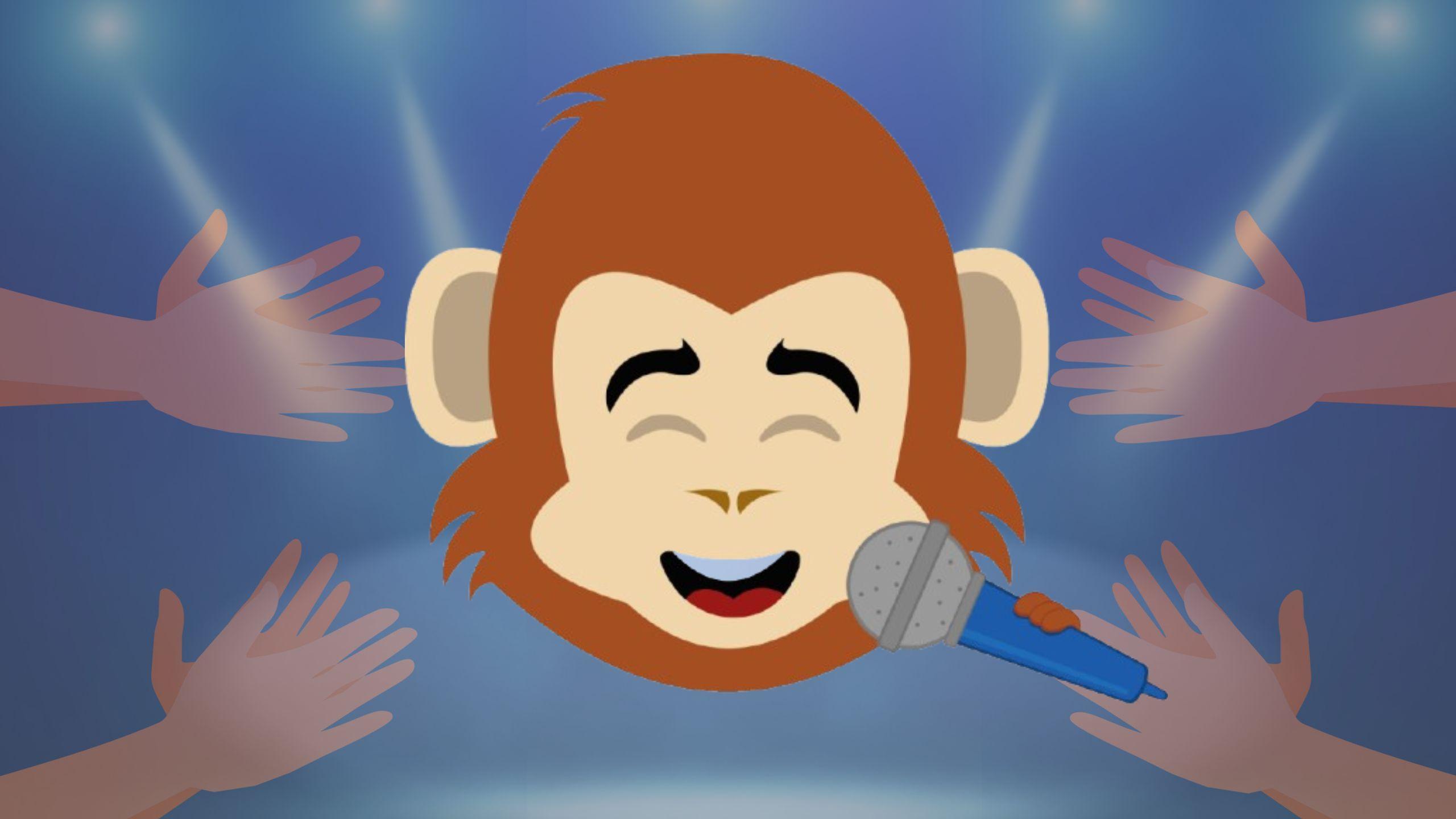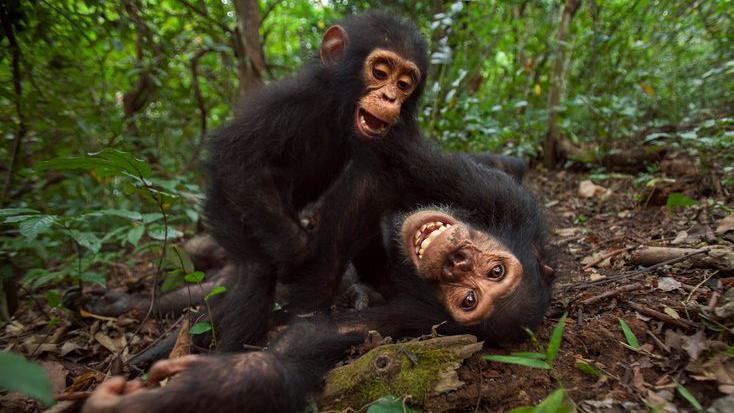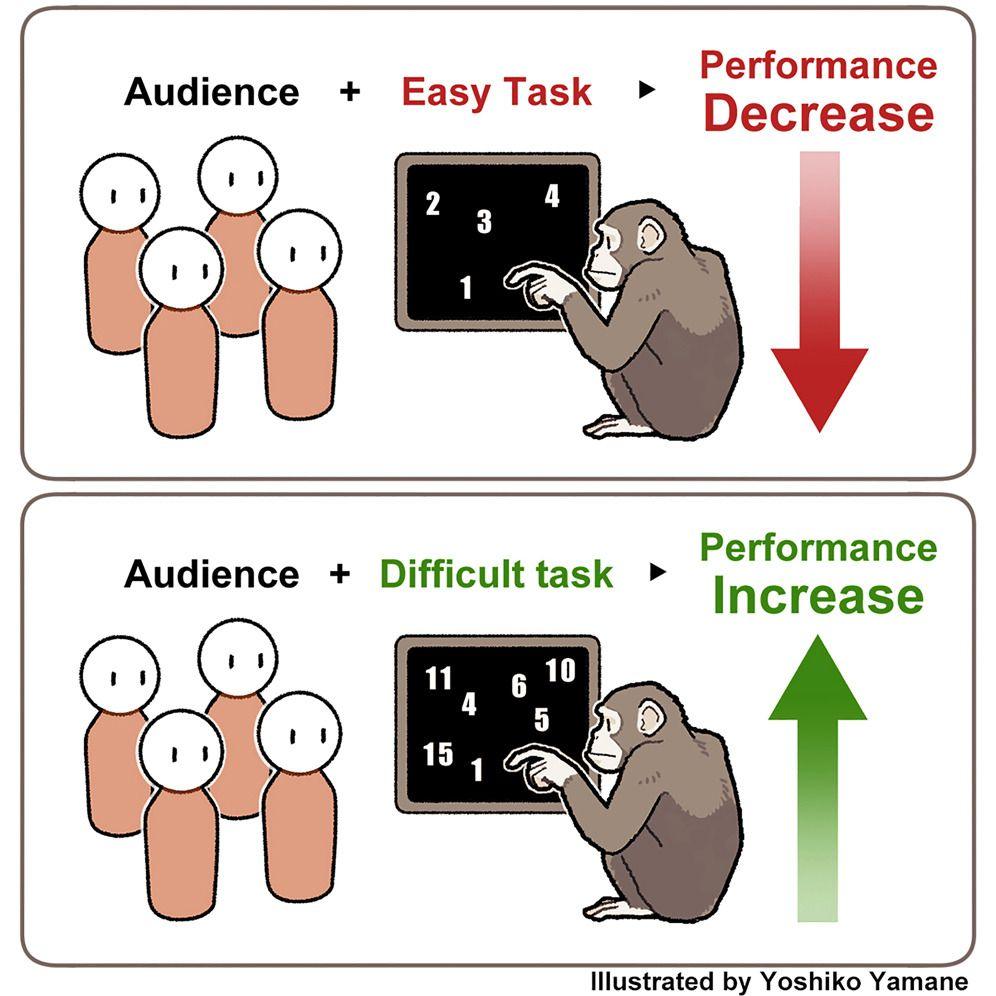Clever chimps 'love showing off to an audience'

OK, so they don't do karaoke but they do love an audience according to the new study.
- Published
Are you a natural performer who loves nothing more than showing off in front of a crowd, or are you more of shy personality?
Well, a new study suggests that chimps and other great apes are natural show-offs and perform tasks better when they have an audience.
In a series of test the performance of all six chimps involved (named Ai, Chloe, Pan, Ayumu, Cleo and Pal), improved the harder the task became when they had people watching them.
Christen Lin, who led the six-year study said this was "surprising" and suggests a "more complex relationship than we would have initially expected."
Chimps show others cool things they see, just like us
- Published16 November 2022
Scientists impressed as Mary the elephant uses a hose with her nose
- Published8 November 2024
Sea otters use tools to open hard-shelled prey
- Published17 May 2024

Chimpanzees are highly intelligent animals
A research team at the Centre for the Evolutionary Origins of Human Behaviour at Kyoto University, in Japan, gave six chimps a number-based task to carry out and found they were able to work to a higher standard when they had human adults watching them.
They even carried out the harder problems to a higher standard when the audience grew, suggesting the pressure of people watching motivated them to perform better.
During the test, the numbers 1 to 5 appeared on the screen in random locations and the chimps simply had to touch the numbers in the correct order to get a food reward.

This illustration shows an example of the test the chimps were taking part in.
The test got progressively harder, with trickier sequences, and the chimps again had to touch the numbers in the correct order.
It got EVEN harder when the numbers were shown briefly and then covered up, meaning the chimps had to memorise where the numbers were.
According to the study, published in the journal iScience, the performance of all six chimps improved the harder the task became when they had people watching them.
Research team member Shinya Yamamoto, said experts had previously thought this behaviour was unique to humans, as we live in a society where people's reputation matters to them.
“But our study shows that this audience effect may have evolved in the ape lineage before the development of this kind of normative society”, he said.
